Óscar Freire's cycling dream team
Three-time world champion picks his ideal nine-man squad
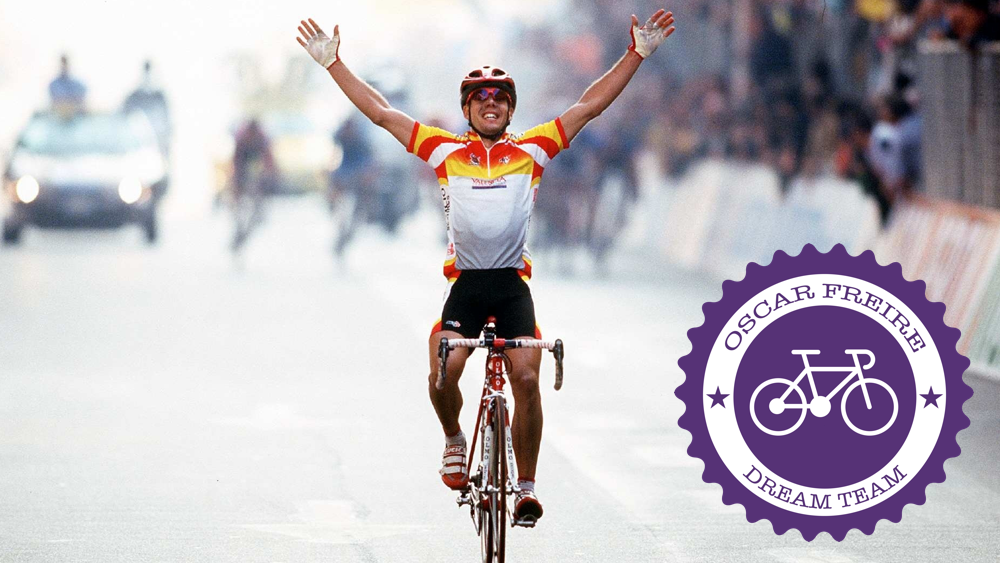
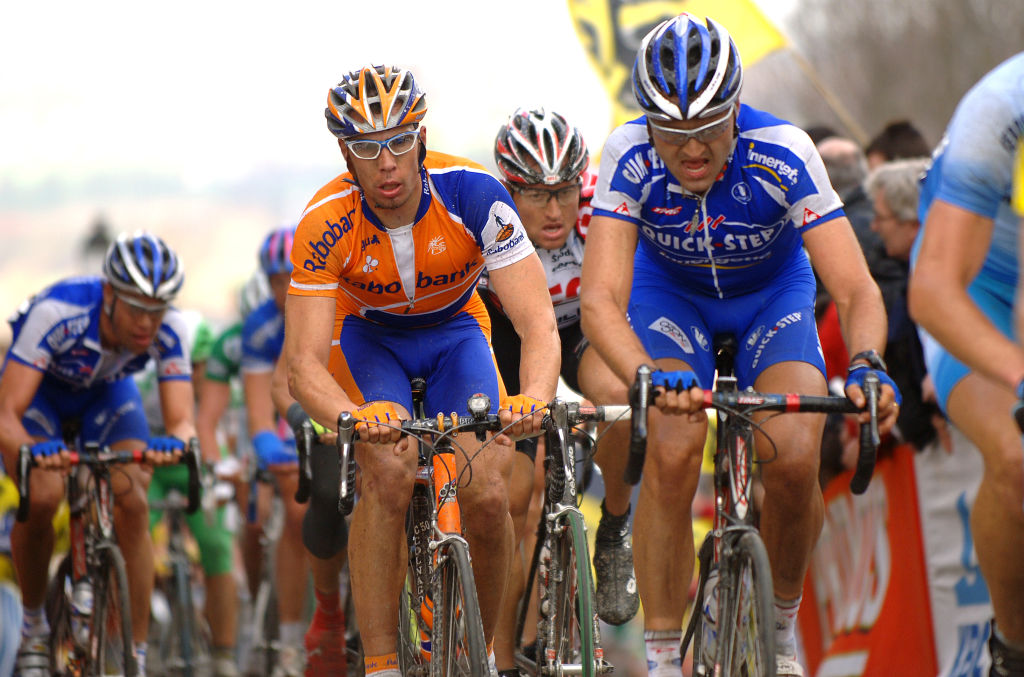
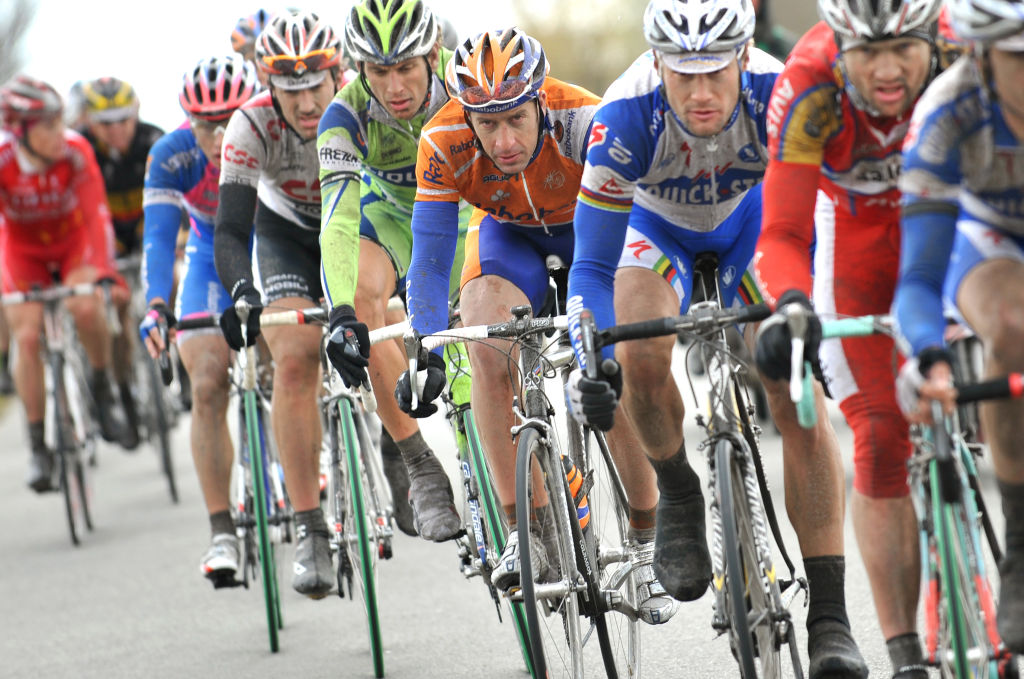
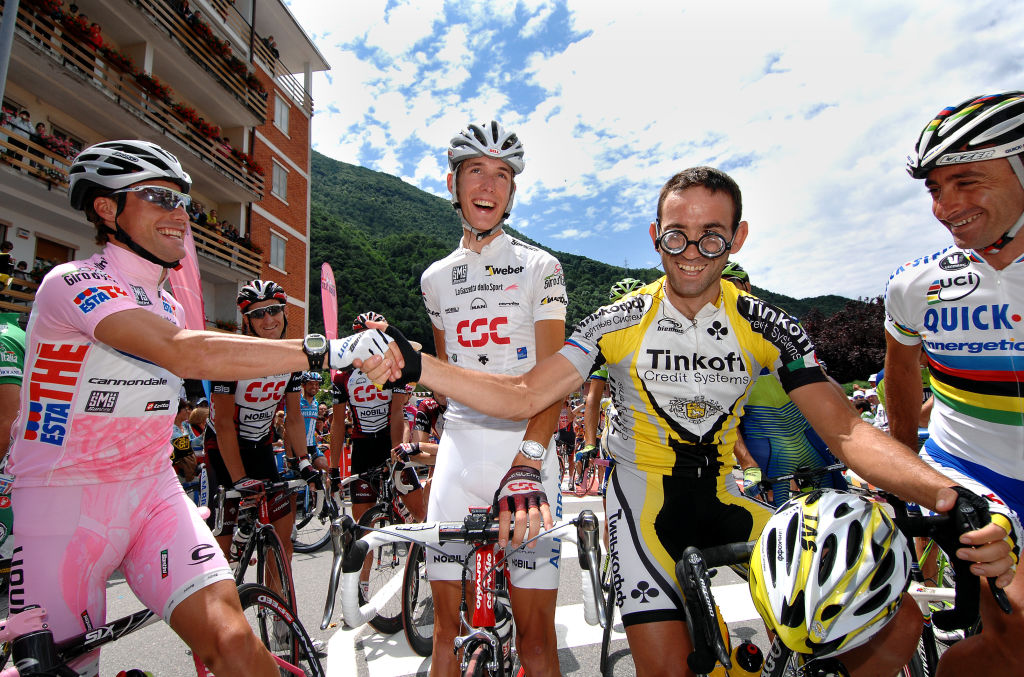
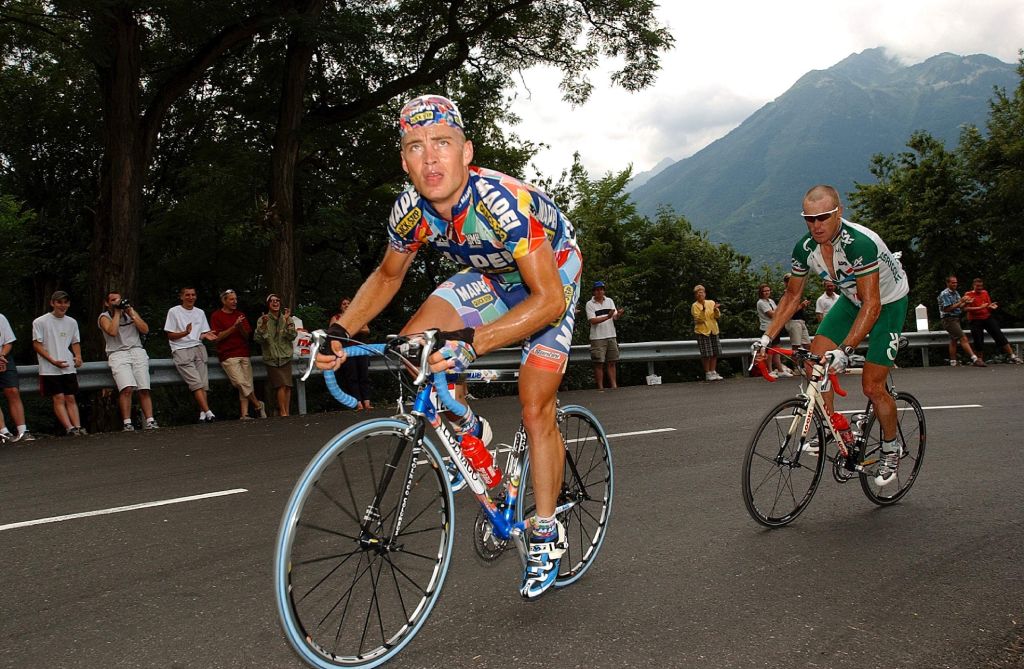
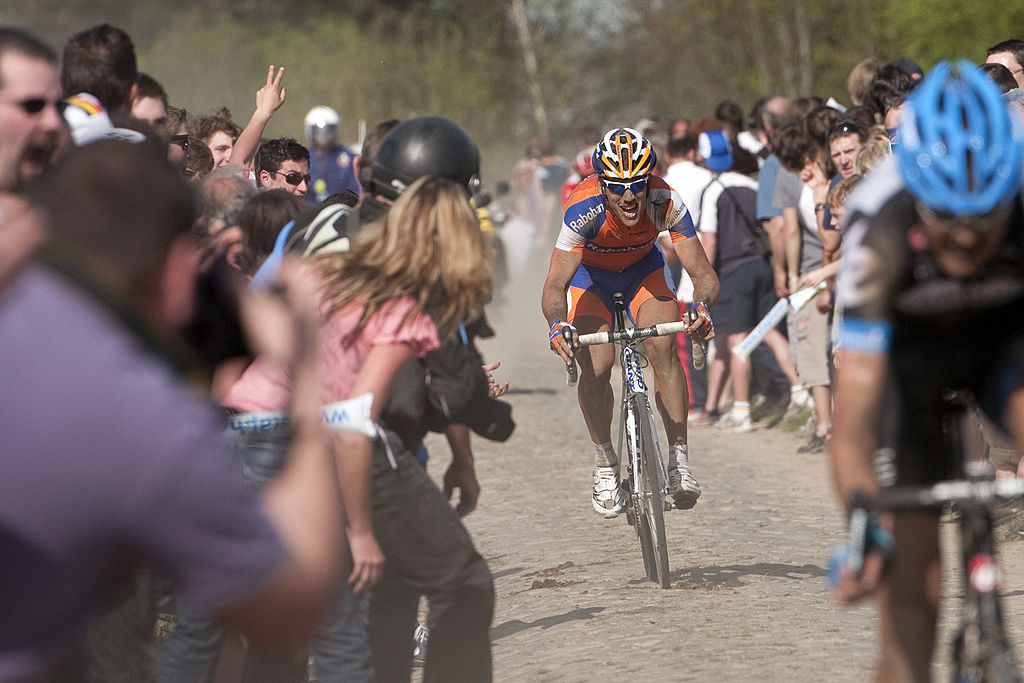
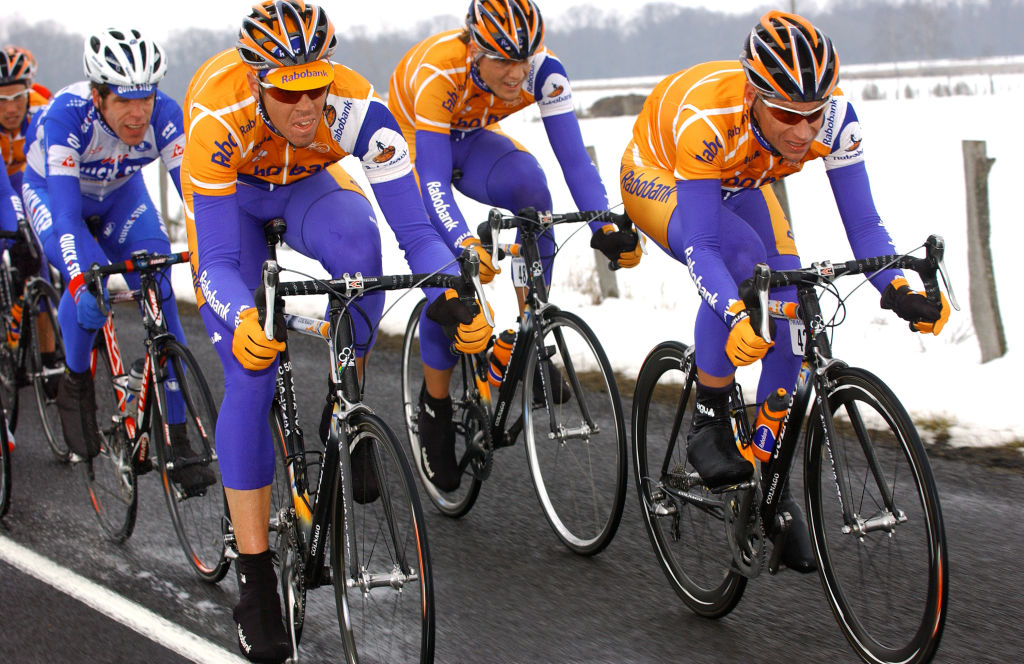
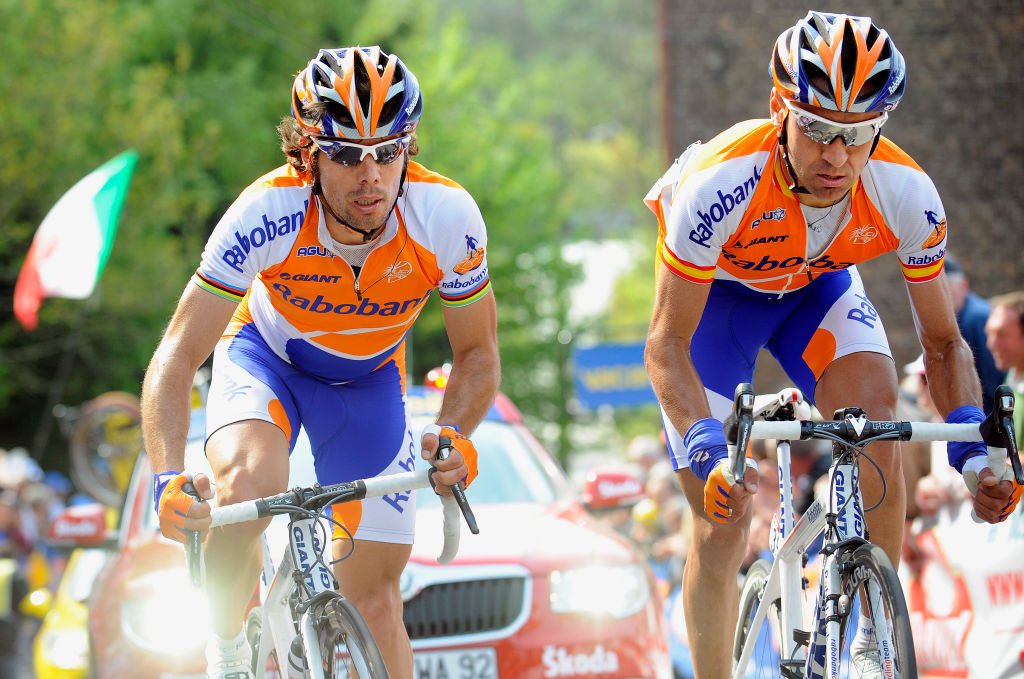
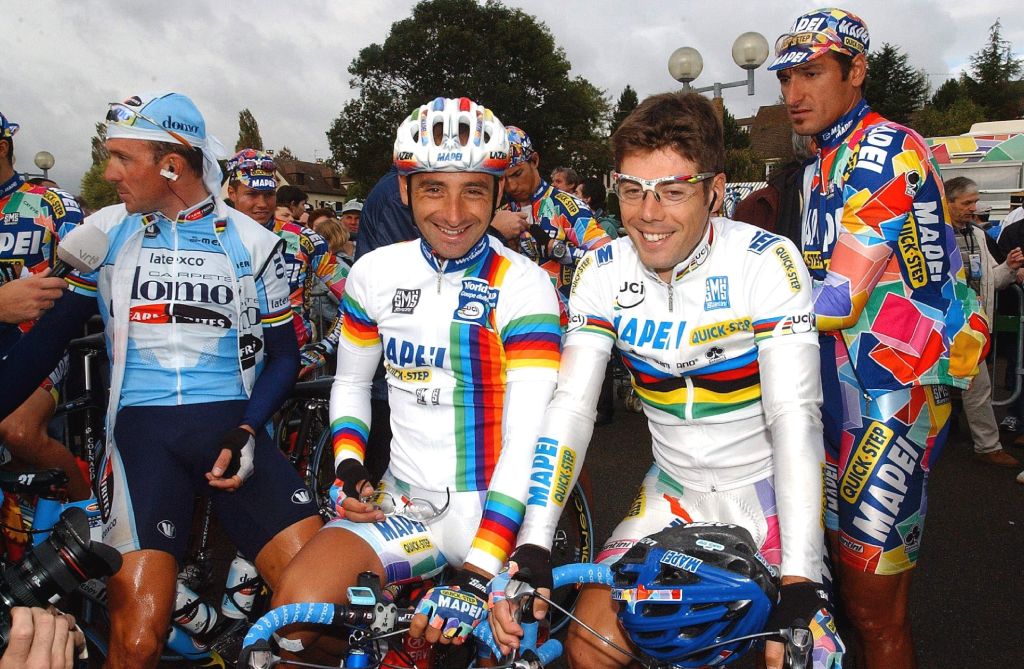
With the Tour of Flanders normally having been done and dusted across the weekend just gone – but in reality postponed until some point later in the season due to the coronavirus crisis – and with the similarly postponed Paris-Roubaix otherwise having been on the horizon for the weekend coming, we're bringing you the dream teams of some of the most influential figures in cycling in lieu of any real racing.
Here, we have Óscar Freire, the Spaniard who won Milan-San Remo and the World Championships three times during his 15-year career. Now 44 and retired from racing since 2012, 'The Cat' has picked eight riders – all teammates from his time at Mapei and Rabobank – to fill out a dream team. He's in there as team leader of course. Read on to find out who he'd want alongside him.
The rules
- Dream teams must feature nine riders, one of which can be the rider selecting the team. In which case they pick eight riders to join them.
- The riders picked must have all ridden with the person picking the team. That means you can’t just pick the eight or nine best riders of a generation.
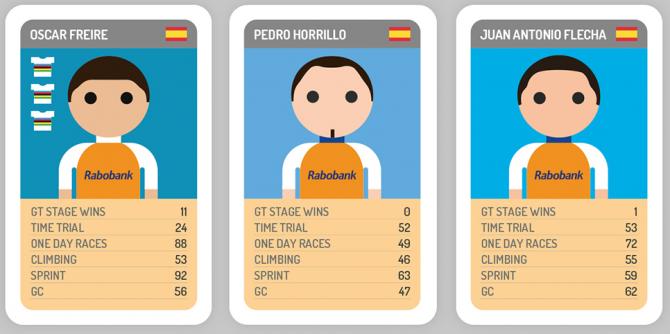
Team leader: Óscar Freire
This is my dream team for me to win a Classic. It's all relative though, because obviously if I were to create a dream team for cycling in general, it would be much easier as I've raced with a lot of top names. But they've wanted to win for themselves, not work for me….
Last men standing: Pedro Horrillo and Juan Antonio Flecha
These two come together because when it's been down to them and them alone to do the work both Horrillo and Flecha would give it absolutely everything. At times, I wish I could have counted on more team support than them, then that would have been even better, but there were times when it was down to just these two in the squad who'd put in the work that was needed.
When it came down to setting me up for a straightforward bunch sprint Horrillo has probably been there right at the end of a race more than Flecha. Flecha would be more there to do the same for me for the tougher finales, but up to the last kilometre. Also when it came down to different types of Classics, apart from Milan-San Remo, Flecha could be up there in a wider variety.
In general they were two riders from Spain who followed the same kind of career path as I did and who were very like me as riders, albeit with different results, but in the same races. Like me, they were very different from what was the typical Spanish racer of the time [generally speaking far more likely to target stage racing than Classics, historically a no-go area for the Spanish - ed.]
There were races, for sure, too, that I wouldn't have won if it hadn't been for Flecha and Horrillo. I remember one year I won Milan-Sanremo I told Pedro, 'when we get to this exact point in the race, forget everything else but get me up to the front on the bunch on the right hand side.' He did exactly that. Then there was a Tour de France stage where me and [rival sprinter] Robbie McEwen finished really close together and earlier on, for some reason me and the team were a long way back: one of them, I can't recollect if it was either Flecha or Horrillo, pulled me right the way up all the way through the bunch, to the front. And then I won the stage.
Get The Leadout Newsletter
The latest race content, interviews, features, reviews and expert buying guides, direct to your inbox!
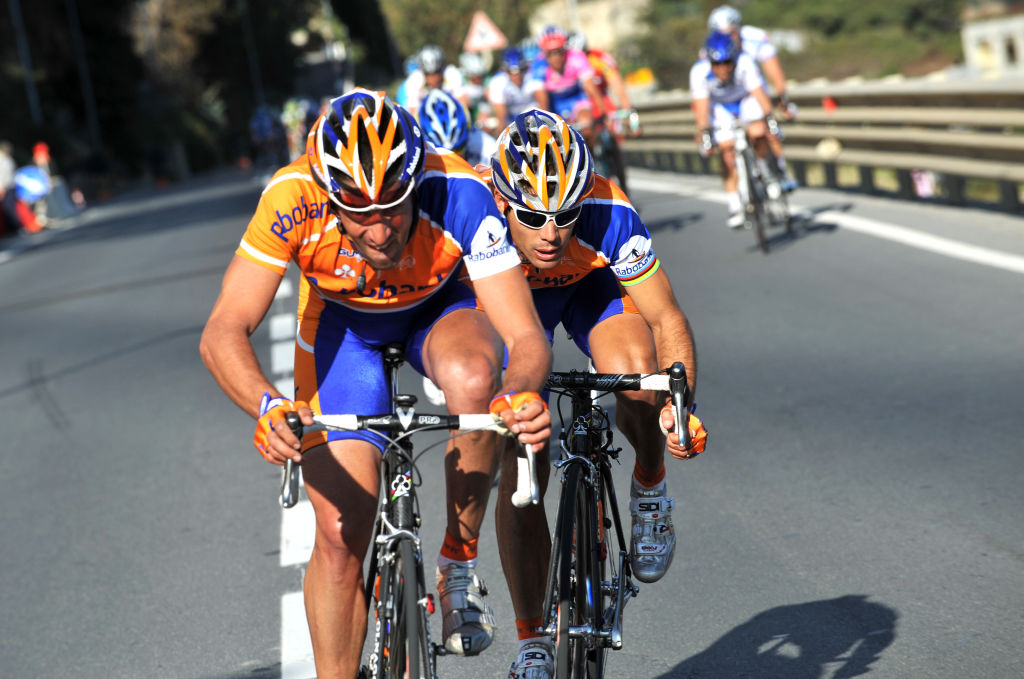
I first met Pedro when I was an amateur and I remember in a race here in Cantabria where we were away, just the two of us, in a break almost until the finish. Then there was the Memorial Valenciaga which is the most important amateur one-day race in Spain, and I got first one year [1997] and he got second, and we both got professional contracts after that.
I was also with Pedro in Vitalicio Seguros as pros right from the start in 1998, where that story you may have heard about us two being the only volunteers in the entire squad for Paris-Roubaix that year was true. We were in a team that was only interested in stage racing, in a country that was only interested in stage racing, and me and Pedro were the ones who wanted to do Flanders and Roubaix. So when [Vitalicio Seguros director Javier] Minguez asked who would volunteer, and we put our hands up, everybody just thought we were taking the mick.
Then when we did go to the cobbled Classics that year as the only volunteers in the squad, the Vitalicio team management didn't exactly tell us to abandon at the first feed, it just that's what they thought was bound to happen! There wasn't just the problem of contending with your own team when it had that attitude towards the northern Classics, either. There was what the neutral service vehicle drivers at the time thought of Spanish Classics racers, too, as I found out the first time I did the Tour of Flanders.
At Flanders I was in the front group of about 60 riders with about 60 kilometres to go. Pretty good. But when I punctured the neutral service vehicle didn't think it was worth stopping to give me another wheel, they just drove straight past. I was a Spanish rider, after all, and that was that. I ended up out of the race because the Vitalicio car was so far back and took such a long time to get through to help me out.
Then in the 1998 Paris-Roubaix, my first year as a pro, it was a similar story. I didn't do so badly, I was third rider in the race into the Arenberg Forest sector and that was where Johan Museeuw had that really bad - and famous - crash just behind me. But I'd never ridden on the pave before, we hadn't gone out to train on the pave before the race and I recall after 30 metres on the pave of Arenberg my feet started coming out of the pedals because I hadn't set them tightly enough..
Even so, that wasn't too bad, because I was going well, Ithink there were six riders up the road in the lead break, [Franco] Ballerini won and I was still in the group just behind those six. But then somebody crashed right in front of me, I went down as well, but not because I'd made a mistake. Horrillo got past me then and finished, but I was pretty sore after that crash and couldn't finish. That was my first and last Paris-Roubaix, and doing that without any experience, that was a very good sign for me, too, about what I could do in the Classics. But maybe not in a Spanish team.
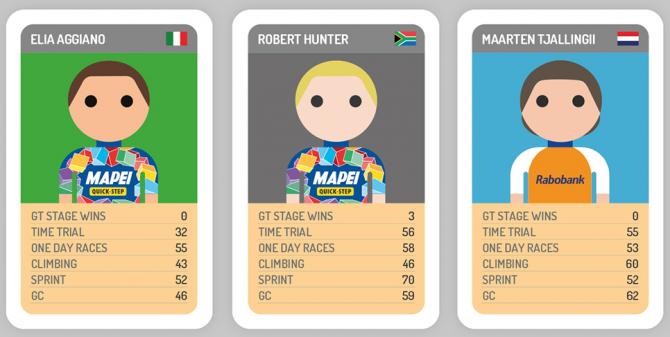
Support rider for finale: Elia Aggiano
Nominally a sprinter, but Elia was also one of the very few who had the cojones to be there with me right up until the end in the final. He was up there in all sorts of Classics, he could read races well and was a great bike handler. Aggiano was brilliant, too, at cheering everybody up, he had a great sense of humour.
Middle to last part of race: Robert Hunter
He was a really experienced guy, great at setting me in the right place for sprints. I really appreciated his work - and Flecha's and Horrillo's - because I never had more than one or two riders with me for the bunch sprints and he was one of the ones who'd be prepared to take those risks for me that other riders wouldn't. Either that, or he was simply one of the few who were better at that job. He spoke perfect Italian, he lived near Lake Como, so communication wasn't a problem. On or off the bike, if things ever got a bit tough, Robbie was someone you'd want by your side.
First part of the race: Maarten Tjallingii
Very strong, very professional and just the sort of rider you needed for the first 100 to 150 kilometres. He was never up there with me in the finales, but I remember he was my 'bodyguard' for the first part of one Milan-Sanremo and he did the job absolutely perfectly.
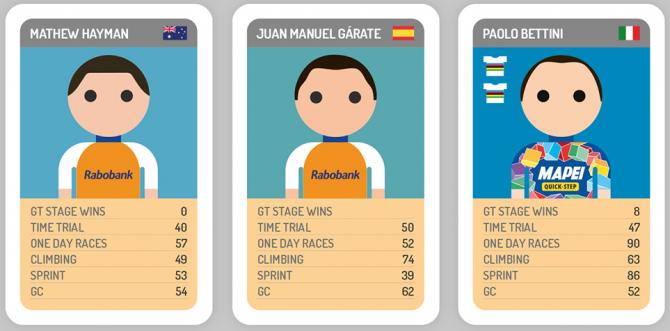
All-rounder: Mathew Hayman
Another great rider for that kind of spadework, a really loyal, dedicated, fearless team-mate who got (and gets) major respect from the peloton and one who I feel was seriously under-exploited by Rabobank. He was also very fast. I don't think it was ever his fault, but if he had had directors in Rabobank who had been more demanding, I think at that point in his career he could have done a lot more in his own right.
Team captain/Domestique de luxe: Juan-Manuel Gárate
Really good at reading races, always very keen to get involved in the racing, a great team-mate and someone who's done something that very few riders have done: win big races in his own right, but also work for all kinds of other riders when he had to - sprinters, gc racers, climbers. He was not a rider who stood out very much for the general public, but inside the peloton and for the directors, Juanma was a rider who was really widely respected and who raced for a long time. I'm sure he'll do a good job as a director at Cannondale, too.
A leader if I'm sick: Paolo Bettini
Assuming I'm not there for some reason, then Paolo would be the ideal replacement, he was absolutely superb as a Classics rider. Very ambitious. If I had to choose one rider who was outstanding as a rival in my career, he would be right up there amongst the select few.
Directeur sportif: Nobody
There are lots of directors out there that understand cycling, but I don't think their job is actually that important in the modern-day sport. You can basically go to any team meeting of any team and at the end of the day, whoever's running it, it'll turn out the same.
At the end of the day, in 99 per cent of the races, the outcome only gets decided right at the end, there are very few surprises in everything barring the real high mountain stages. So the director's role is a very limited one, particularly because of the race radios. When you're in a Tour stage, all they would tell us was to stay close to the front. It was always the same.
The one director who really made his riders sit up and pay attention was [Vitalicio Seguros] director Javier Minguez. He had a lot more influence on the riders and on the races. Minguez would get really angry if a rider didn't follow his orders in a race, and that rider would be excluded from the next race, too.
That didn't happen so much with the other directors, at least not with the ones I had. They'd tell riders to be up there with me at the end, but if that didn't happen, it was almost like it didn't matter. So that's why I'm saying the majority of directors really don't have much influence in races. At the end of the day, it's up to the riders and their team-mates.